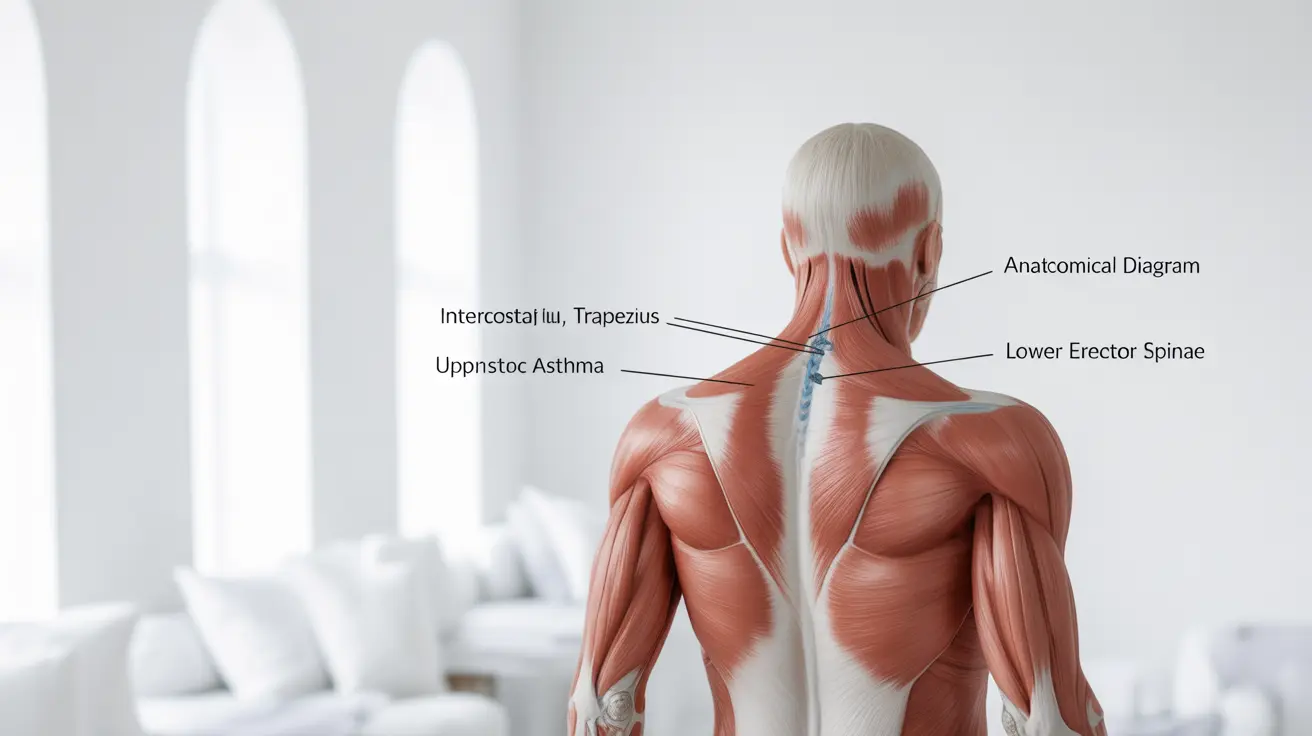Many people with asthma experience not only respiratory symptoms but also unexpected complications like back pain. This connection between asthma and back discomfort often surprises patients, yet it's a real concern that can significantly impact quality of life.
Understanding how asthma contributes to back pain and learning effective management strategies can help those affected find relief and maintain better overall health. Let's explore this important relationship and discover practical solutions.
The Link Between Asthma and Back Pain
Asthma can indeed cause back pain through several mechanisms. The most common cause is the repeated strain from persistent coughing, which can affect muscles in the back and chest wall. Additionally, the extra work of breathing during asthma episodes can create tension in the muscles supporting the ribcage and spine.
How Asthma Affects Your Back Muscles
During asthma attacks or periods of difficult breathing, several muscle groups work harder than usual:
- Intercostal muscles between the ribs
- Upper back muscles
- Lower back muscles
- Accessory breathing muscles in the neck and shoulders
This increased muscular effort can lead to strain, soreness, and persistent pain, particularly in the middle and upper back regions.
Understanding the Symptoms
When asthma contributes to back pain, you may experience various symptoms:
- Sharp pain between shoulder blades
- Dull aching in the middle or upper back
- Muscle tension and stiffness
- Pain that worsens with coughing or deep breathing
- Increased discomfort during asthma flare-ups
Prevention and Management Strategies
Effective management of both asthma and related back pain requires a comprehensive approach:
Asthma Control
The first line of defense is maintaining good asthma control:
- Following your prescribed medication schedule
- Identifying and avoiding asthma triggers
- Regular check-ups with your healthcare provider
- Using proper inhaler technique
Back Pain Relief
Several strategies can help alleviate back pain associated with asthma:
- Gentle stretching exercises
- Proper posture maintenance
- Heat or cold therapy
- Stress reduction techniques
- Regular physical activity as tolerated
Treatment Options
Treatment should address both the underlying asthma and the resulting back pain:
Medical Interventions
- Asthma medications (inhalers, oral medications)
- Anti-inflammatory medications
- Physical therapy when appropriate
- Muscle relaxants if prescribed
Self-Care Measures
- Regular stretching routines
- Good posture practices
- Adequate rest periods
- Proper breathing techniques
Frequently Asked Questions
Can asthma cause back pain and what are the common symptoms to watch for?
Yes, asthma can cause back pain, primarily due to repeated coughing and increased breathing effort. Common symptoms include upper and middle back pain, muscle tension between the shoulder blades, and pain that worsens during asthma flare-ups.
Why does frequent coughing from asthma lead to back and shoulder pain?
Frequent coughing strains the muscles in your back and shoulders, causing repetitive stress. This continued muscle tension and strain can lead to soreness, inflammation, and persistent pain in these areas.
How can managing asthma help reduce or prevent back pain?
Proper asthma management reduces coughing episodes and muscle strain, which in turn decreases back pain. Following your asthma action plan, taking medications as prescribed, and avoiding triggers can significantly reduce both asthma symptoms and related back pain.
What treatments or remedies are effective for relieving back pain related to asthma?
Effective treatments include a combination of proper asthma management, gentle stretching exercises, heat/cold therapy, and maintaining good posture. Physical therapy and anti-inflammatory medications may also help when recommended by your healthcare provider.
When should I see a doctor if I have asthma and persistent or severe back pain?
Consult your doctor if back pain is severe, persistent, or interferes with daily activities. Seek immediate medical attention if you experience back pain alongside difficulty breathing, chest pain, or other concerning symptoms.




